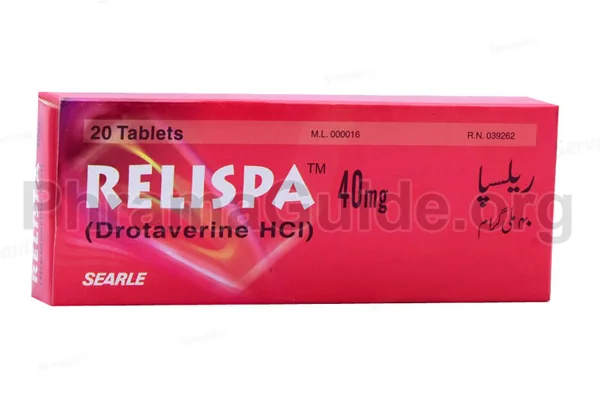Relispa is a medication used primarily for the treatment of smooth muscle spasms and pain associated with various gastrointestinal and gynecological conditions. Like any medication, Relispa can have side effects, which can be categorized into common and less common side effects.
Common Side Effects
- Nausea: Some people may experience mild nausea after taking Relispa.
- Headache: Headaches are a common side effect of Relispa.
- Dizziness: Relispa can sometimes cause dizziness, which may affect your ability to operate machinery or drive safely.
- Gastrointestinal upset: This may include symptoms like stomach discomfort, bloating, or diarrhea.
- Dry mouth: A dry or parched feeling in the mouth is a relatively common side effect of Relispa.
- Sweating: Some individuals may experience increased sweating while taking Relispa.
- Flushing or redness of the skin: This may be accompanied by a feeling of warmth.
Less Common Side Effects
- Allergic reactions: Although rare, some individuals may experience allergic reactions with Relispa use, which can include skin rash, itching, swelling, and difficulty breathing.
- Low blood pressure: In some cases, Relispa can cause a drop in blood pressure, leading to symptoms like dizziness, fainting, or lightheadedness.
- Irregular heartbeat: Relispa also causes arrhythmias or irregular heartbeats have been reported, although it is relatively rare.
- Liver function abnormalities: Relispa can affect liver function, leading to elevated liver enzymes.
- Central nervous system effects: Relispa may cause central nervous system issues such as confusion, agitation, or tremors.
- Visual disturbances: Some individuals may experience blurred vision or other visual disturbances with Relispa.

What is Relispa?
Relispa is one of the leading brands of Drotaverine, manufactured and marketed by Searle Pharma Pakistan.
Relispa : Available Formulations and Strengths
Presently, Relispa is available in Tablet and Injectable Forms
Relispa Tablets : 40mg and 80mg Strengths
Relispa Injections : 40mg and 80mg Strengths
What Are The Possible Drug Interactions of Relispa?
- Alcohol: Combining Relispa with alcohol can increase the risk of dizziness and drowsiness. It’s advisable to avoid alcohol while taking this medication.
- Other antispasmodic medications: Taking multiple antispasmodic medications together may lead to an additive effect and increase the risk of side effects. It’s generally not recommended to use Relispa concurrently with other antispasmodics.
- CYP3A4 inhibitors: Relispa is metabolized in the liver, and drugs that inhibit the CYP3A4 enzyme may affect its metabolism. This can lead to increased Drotaverine levels in the bloodstream, potentially causing stronger effects or side effects. Common CYP3A4 inhibitors include certain antifungal medications, macrolide antibiotics, and some antiretroviral drugs.
- CYP3A4 inducers: Drugs that induce the CYP3A4 enzyme may accelerate the metabolism of Relispa, potentially reducing its effectiveness. Rifampicin, an antibiotic used to treat tuberculosis, is an example of a CYP3A4 inducer.
- Central nervous system depressants: Combining Relispa with other medications that have sedative effects, such as benzodiazepines, opioids, or certain sleep medications, can increase the risk of drowsiness and dizziness.
- Medications affecting heart rate: Some drugs, like beta-blockers and certain antiarrhythmic medications, may interact with Relispa and potentially lead to changes in heart rate.
- Grapefruit and grapefruit juice: Grapefruit and its juice can interact with a variety of medications, including Relispa. It can inhibit the metabolism of the drug, potentially leading to increased levels in the bloodstream.

Leave A Comment